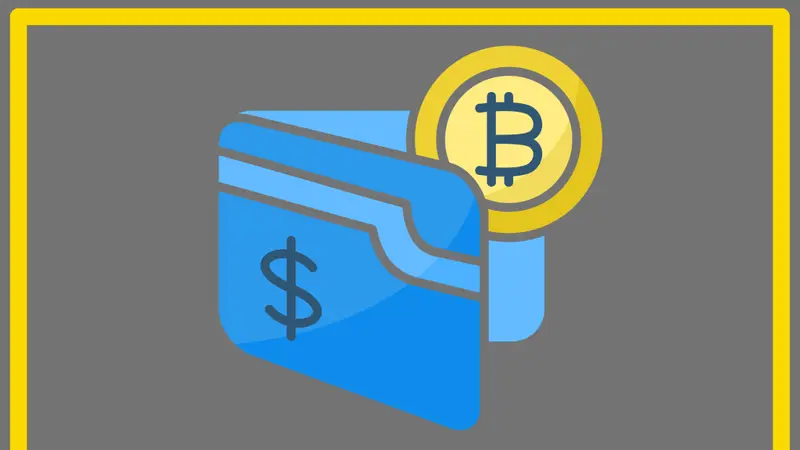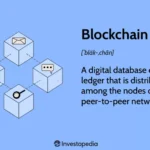In today’s rapidly evolving financial landscape, you’ve probably heard the buzz about Bitcoin. But what exactly is this digital currency, and why is it causing such a stir? Whether you’re a curious newbie or someone looking to dip their toes into the world of cryptocurrency, this guide will walk you through the essentials of Bitcoin. So, buckle up as we embark on this digital adventure!
1. What is Bitcoin?
1.1 Definition and origin
Bitcoin, oh Bitcoin! It’s the talk of the town, isn’t it? But let’s break it down to its core. Bitcoin is a decentralized digital currency that operates without the need for intermediaries like banks or governments. Imagine sending money as easily as sending an email – that’s the promise of Bitcoin.
Born in 2009, Bitcoin was the brainchild of an enigmatic figure (or group) known as Satoshi Nakamoto. Talk about a mystery wrapped in an enigma! This anonymous creator released Bitcoin as open-source software, setting the stage for a financial revolution.
1.2 Key features of Bitcoin
What makes Bitcoin stand out in the crowded field of currencies? Here are some of its defining characteristics:
- Decentralization: No single entity controls Bitcoin. It’s like a potluck dinner where everyone brings a dish – the power is distributed.
- Limited supply: There will only ever be 21 million Bitcoins. Scarcity, my friends, is built into its DNA.
- Pseudonymity: While not entirely anonymous, Bitcoin offers a degree of privacy. Think of it as wearing a mask at a masquerade ball – you’re visible, but not immediately identifiable.
- Borderless transactions: Send Bitcoin across the globe as easily as across the street. No passport required!
2. How Bitcoin Works
2.1 Blockchain technology explained
At the heart of Bitcoin lies the blockchain – a technological marvel that’s revolutionizing more than just finance. But what is it? Imagine a digital ledger, but instead of being stored in one place, it’s duplicated thousands of times across a network of computers.
Each ‘block’ in this chain contains a list of transactions. Once a block is completed, it’s added to the chain, creating a permanent and unalterable record. It’s like a game of digital Jenga, where each piece supports and verifies the others.
2.2 Mining and transaction verification
Now, let’s talk about Bitcoin mining. No, we’re not donning hard hats and heading underground. Bitcoin mining is the process by which new Bitcoins are created and transactions are verified.
Miners use powerful computers to solve complex mathematical problems. The first to solve the puzzle gets to add a new block to the blockchain and is rewarded with newly minted Bitcoins. It’s like a high-stakes, global math competition with a lucrative prize!
3. Getting Started with Bitcoin
3.1 Creating a Bitcoin wallet
Ready to join the Bitcoin bandwagon? Your first step is to get a Bitcoin wallet. Think of it as a digital piggy bank where you store your Bitcoin. There are several types:
- Software wallets: Apps you can download on your phone or computer.
- Hardware wallets: Physical devices that store your Bitcoin offline.
- Paper wallets: For the old-school among us, these are printouts of your public and private keys.
Choose wisely – your wallet is your gateway to the Bitcoin world!
3.2 Buying and selling Bitcoin
Now that you’ve got your wallet, it’s time to fill it with some Bitcoin. Here’s how:
- Cryptocurrency exchanges: Platforms like Coinbase or Binance allow you to buy Bitcoin with traditional currency.
- Bitcoin ATMs: Yes, they exist! Find one near you to buy Bitcoin with cash.
- Peer-to-peer platforms: Websites that connect buyers and sellers directly.
Remember, start small and only invest what you can afford to lose. The Bitcoin roller coaster can be thrilling, but it’s not for the faint of heart!
4. Bitcoin’s Value and Market Dynamics
4.1 Factors influencing Bitcoin’s price
Bitcoin’s price is about as predictable as a cat’s mood. But several factors play a role:
- Supply and demand: As with any commodity, when demand outstrips supply, prices rise.
- Media coverage: A single tweet from a high-profile figure can send prices soaring or plummeting.
- Regulatory news: Government decisions on Bitcoin can have significant impacts.
- Technological developments: Upgrades to the Bitcoin network can influence its value.
4.2 Bitcoin as an investment
Is Bitcoin the golden ticket to riches? Well, it’s complicated. Bitcoin has seen astronomical rises in value, but it’s also prone to dramatic falls. It’s less of a stable investment and more of a wild ride on a financial rollercoaster.
Some see Bitcoin as digital gold – a hedge against inflation and economic uncertainty. Others view it as a speculative bubble waiting to burst. As with any investment, do your homework and never invest more than you can afford to lose.
5. Advantages and Disadvantages of Bitcoin
5.1 Benefits of using Bitcoin
Bitcoin isn’t just digital money; it’s a new way of thinking about finance. Here are some perks:
- Financial inclusion: Bitcoin provides banking-like services to the unbanked.
- Low transaction fees: Especially for international transfers, Bitcoin can be cheaper than traditional methods.
- Fast transactions: Send money across the world in minutes, not days.
- Control: You’re your own bank. No need to trust third parties with your money.
5.2 Potential risks and challenges
But it’s not all sunshine and roses in Bitcoin land. Be aware of these potential pitfalls:
- Volatility: Bitcoin’s value can fluctuate wildly, sometimes within hours.
- Regulatory uncertainty: Many governments are still figuring out how to handle Bitcoin.
- Security concerns: If you lose access to your wallet, your Bitcoin is gone for good.
- Environmental concerns: Bitcoin mining consumes a significant amount of energy.
6. The Future of Bitcoin and Cryptocurrency
6.1 Regulatory landscape
As Bitcoin grows, so does regulatory scrutiny. Governments worldwide are grappling with how to classify and regulate this new asset class. Some countries have embraced Bitcoin, while others have banned it outright. The regulatory landscape is as dynamic as Bitcoin itself, so stay informed!
6.2 Potential impact on traditional finance
Could Bitcoin disrupt the entire financial system? Some believe it could render traditional banks obsolete, while others see it as a complementary system. One thing’s for sure – Bitcoin and blockchain technology are forcing the financial world to innovate and adapt.
From faster cross-border payments to more transparent financial systems, the potential impacts are far-reaching. But will Bitcoin become the currency of the future or remain a niche investment? Only time will tell!
Conclusion
And there you have it – your crash course in Bitcoin basics! We’ve journeyed through the digital landscape of cryptocurrency, from its mysterious origins to its potential future impact. Bitcoin represents a fascinating blend of technology, economics, and social change.
Whether you’re looking to invest, use Bitcoin for transactions, or simply understand this digital phenomenon, remember that knowledge is power. Stay curious, keep learning, and who knows? You might just be at the forefront of a financial revolution.
But remember, in the world of Bitcoin, the only constant is change. So buckle up, stay informed, and enjoy the ride!










